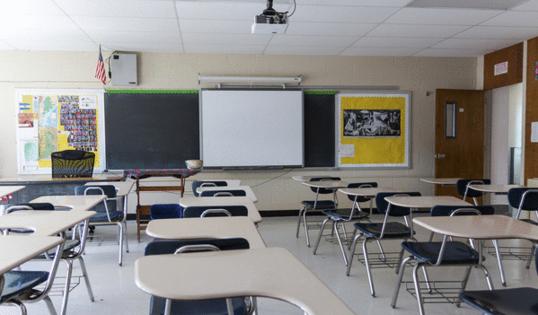Commentary: When teachers start self-censoring
Published in Op Eds
As classrooms reopened this fall, many teachers returned to school with both new lesson plans and new boundaries — political ones.
According to EdChoice and Morning Consult’s most recent educator survey, which polled teachers at the end of September, about 40% of America’s teachers say they’ve had to change what they teach or discuss in class because of political pressure.
That is not a fringe issue. It’s nearly half the profession.
Even more striking, a majority of teachers aren’t waiting for directives at all. Fifty-six percent said they’ve decided on their own to avoid or limit discussion of political or social topics in class, a 13-point jump since spring. That’s a sign that the classroom atmosphere itself, not just the rules, has changed this school year.
Notably, there isn’t a divide between public and private schools — both groups of teachers report making curriculum changes at similar rates. What differs is who’s driving those changes.
Public school teachers point to administrators (35%), the federal government (33%), and state governments (31%) as their main sources of political pressure. Private school teachers, meanwhile, cite parents most often — 41%, compared with 28% in public schools.
In public systems, the political climate in Washington or state capitals has a direct impact on teachers’ lesson plans. In private or independent settings, politics percolate into the classroom through parents’ political attitudes.
Political pressure may manifest differently in public and private schools, but the story of censorship remains the same.
For public school teachers, that may mean quietly adjusting lessons to match federal or state priorities under the current administration.
For private school teachers, this could look like carefully limiting classroom discussion around certain topics after receiving feedback from an unhappy parent.
The EdChoice data should be eye-opening for families who don’t agree with the dominant political direction of their government — and for anyone who values free thought in the classroom. If 40% of teachers are already modifying lessons and more than half are self-censoring, that means classrooms may reflect political caution rather than genuine inquiry.
Classrooms that avoid important political and social issues will struggle to help students become independent thinkers and good citizens. The free exchange of ideas teaches students critical thinking skills and how to engage in respectful civil discourse.
School choice might offer some families a solution to the problem of growing censorship.
Public schools are uniquely vulnerable to political pressure from the government. When government authorities — of any political leaning — shape classroom content, it narrows what teachers feel free to say. Outside of a public school setting, parents can choose a schooling option that isn’t a reflection of directives from political agencies.
While the data shows that private schools are not immune to ideological pressure, private schools aren’t one-size-fits-all. Parents have the option to seek out an education model that emphasizes free thought and civic discourse.
And moreover, school choice isn’t limited to just private schools anymore. Charter schools, hybrid homeschools, microschools, and education savings accounts (ESAs) are giving families the ability to shape learning environments in ways traditional systems often can’t.
The more that classroom lesson plans aren’t modified to suit shifting political attitudes, the more likely classrooms can remain bastions of learning — not a reflection of the politics of whoever happens to be in power.
____
Alli Aldis is a research assistant at EdChoice, a 501(c)(3) nonprofit, nonpartisan organization working to advance educational freedom and choice for all students as a pathway to successful lives and a stronger society.
_____
©2025 Tribune Content Agency, LLC.
























































Comments